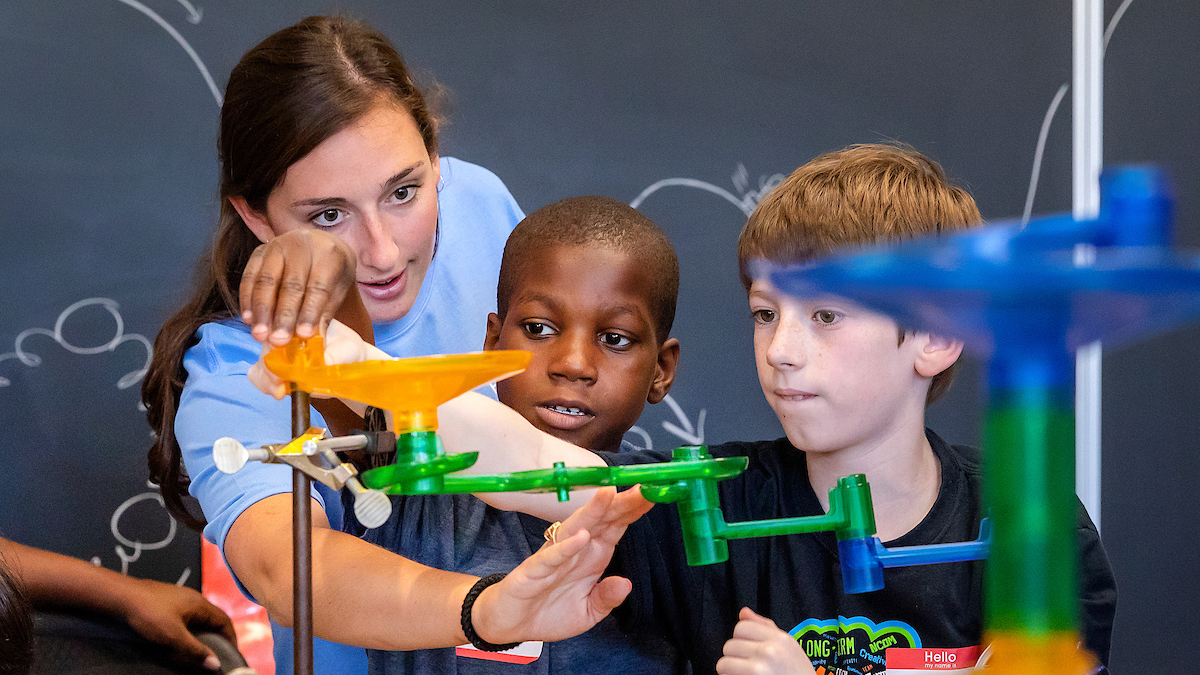Carolina outreach event empowers young scientists
Nearly 300 elementary school students visited the University for a day of scientific exploration.

Jennifer Weinberg-Wolf was the only girl in her third grade rocket science club. More specifically, she was the only girl who had ever joined the third grade rocket science club.
As soon as she did, she made up her mind: she would become a scientist.
Now an assistant professor of physics and astronomy, she’s traded in her model rockets to teach advanced physics concepts to students at the University of North Carolina at Chapel Hill. But Weinberg-Wolf also hopes to make science accessible to elementary school students, just as her third grade teacher did for her.
“He bent over backwards to make sure I felt included in the group,” she said. “All of a sudden, science felt like a possibility for me. If we can get other kids considering science as something that is possible for them, then the world is open to them.”
With Carolina’s physics and astronomy department, Weinberg-Wolf organized Science is Awesome, an event aimed at encouraging kids to consider STEM fields early on. Nearly 300 fourth-grade students from local elementary schools visited campus on May 15 for a day of experiments, team challenges and gravity-defying fun.
Carolina undergraduates, graduate students and faculty volunteers demonstrated the basics of physics and astronomy, looking at everything from hovercrafts to dominoes to alien life forms.
Faculty members also presented their latest cutting-edge research in a “reverse science fair,” inviting the kids to vote on their favorite projects, and participants capped off the day by enjoying a scoop of ice cream made with liquid nitrogen.
The goal of the event, Weinberg-Wolf said, was to give students the “wow factor,” and to help them see that science careers are for everyone.
“It’s magic!” one student called out during a boomerang demonstration.
“No,” another student said. “It’s physics!”
Organizers also hope the kids’ visit to campus will make the college experience feel attainable. More than 28 percent of students of the participating elementary schools live below the federal poverty line, and many who attend college will be first-generation college students.
“I think having this hands-on experience and being in a collegiate setting is such a great opportunity for the kids,” said Frank Porter Graham Elementary School teacher Shaunna Jefferies. “Most of our students don’t know if they’re going to go to college or not, so being comfortable in this setting is wonderful.”




